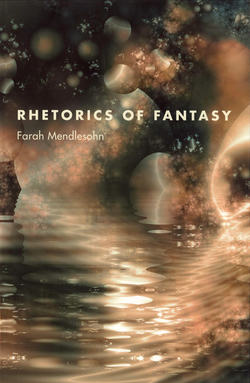Читать книгу Rhetorics of Fantasy - Farah Mendlesohn - Страница 11
На сайте Литреса книга снята с продажи.
A Note on the Selection of Texts
ОглавлениеNo system of selection has been applied to the choice of texts in this book. At best, the selection builds on Attebery’s notion of the fuzzy set—the idea that there are core likenesses around which we can construct ever more distant perimeters—but with one significant caveat. I argue here that rather than a single fuzzy set, from which fantasy moves from genre to slipstream, we can actually identify several fuzzy sets, linked together by what John Clute has termed taproot texts (Encyclopedia 921–922). Inevitably, some forms of fantasy appeal to me more than others and I have yet to find a reader who claims to enjoy all of the kinds I have outlined: to give just one example, readers who like portal-quest fantasies rarely seem to enjoy the liminal fantasies, and vice versa. I have not been able to keep this coloration entirely absent from the text, although where I knew my own tastes might predetermine my analysis, I tackled the problem in part by asking those more enthusiastic for the forms to select my reading. This outside selection is particularly evident in chapter 1 (portal-quest fantasy) and chapter 3 (intrusion fantasy) where all the texts chosen came recommended by friends and members of the International Association of the Fantastic in the Arts online discussion list. In contrast the books selected for chapters 4 and 5 are works I had already read, and that had fascinated me. A consequence is that some writers central to the field do not appear in this book: in each case the omission is entirely because my personal taste does not extend in their direction. For these reasons, and aware that the passive academic voice has a tendency to reinforce reification, I have chosen to retain the first person.
I am not myself always convinced my assignments are appropriate. Some books have been wrangled back and forth between chapters as I have tried to decide in which mode they were written. Dividing between immersive fantasies (which just happened to have intrusions as part of their plot but whose rhetoric emphasized the immersive qualities of the text) and those fantasies set in other worlds (in which intrusion is the source of the fantastic) was not always easy. Whether the choices have been correct or not, the very engagement with them has generated questions about the ways in which the fantastic is written; any disputes as to where I have placed each book will, I hope, generate more.
Finally, where possible—and unless stated otherwise—I have referenced all texts to the first editions. The major exception to this is in chapter 3 where the classic Gothic novels are all referenced to current Penguin Classics for the ease of both author and reader.
